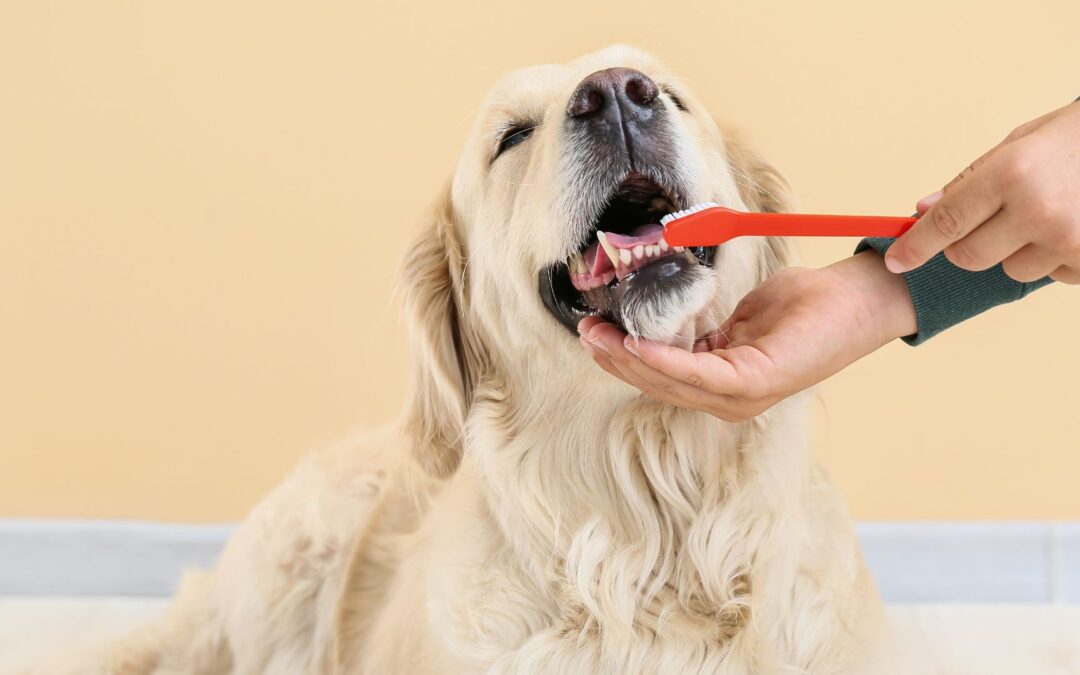When it comes to your pet’s overall health, dental care is often overlooked but plays a vital role in their well-being. Just like humans, pets can suffer from a variety of dental issues, including plaque buildup, gum disease, and even tooth loss. In fact, the American Veterinary Dental Society reports that 80% of dogs and 70% of cats show signs of dental disease by the age of three. Fortunately, with a little effort and routine care, you can keep your pet’s teeth and gums healthy and prevent serious health issues down the road.
Why Pet Dental Health Matters
Dental disease in pets isn’t just about bad breath. Left untreated, it can lead to infections that spread to other parts of the body, including the heart, kidneys, and liver. Symptoms of dental problems in pets include:
- Bad breath
- Discolored or loose teeth
- Difficulty eating
- Swollen or bleeding gums
- Excessive drooling
By prioritizing dental health, you’re not only ensuring your pet’s comfort but also contributing to their long-term health and happiness.
Steps to Improve Your Pet’s Dental Health at Home
Taking care of your pet’s teeth doesn’t have to be a daunting task. Here are some simple steps you can incorporate into your routine:
1. Brush Their Teeth Brushing your pet’s teeth is one of the most effective ways to prevent plaque buildup. Use a pet-safe toothbrush and toothpaste (never human toothpaste) and aim for at least 2-3 times per week. (Check out recommendations from the American Veterinary Medical Association) Start slowly and reward your pet to make it a positive experience.
2. Provide Dental Chews Many dental chews and treats are designed to reduce plaque and tartar while freshening your pet’s breath. Look for products approved by the Veterinary Oral Health Council (VOHC) for added peace of mind. (Find VOHC-approved products here)
3. Incorporate Dental Toys Dental toys are not just fun for your pet; they also help clean teeth and massage gums. These toys can be a great supplement to brushing.
4. Offer a Balanced Diet Feeding your pet a high-quality diet can support overall oral health. Certain kibble formulas are specially designed to reduce plaque buildup.
5. Schedule Regular Vet Visits Routine check-ups are crucial for monitoring your pet’s dental health. Your veterinarian can identify early signs of dental disease and recommend professional cleanings if needed.
When to Seek Professional Help
Even with diligent at-home care, some pets may still require professional dental cleanings. If you notice persistent bad breath, reluctance to eat, or signs of pain around the mouth, it’s time to consult your veterinarian. Professional cleanings under anesthesia allow for thorough scaling and polishing, ensuring a clean slate for maintaining oral health at home.
A Healthier Smile, A Happier Pet
By dedicating time to your pet’s dental care, you’re giving them more than just a brighter smile. You’re ensuring they enjoy a longer, healthier life free from the pain and complications associated with dental disease. If you’re ready to take the next step in your pet’s dental health journey, contact Lone Tree Animal Care Center in Omaha to schedule a dental exam today. (Visit us at LoneTree) Together, we can help your pet shine inside and out!
